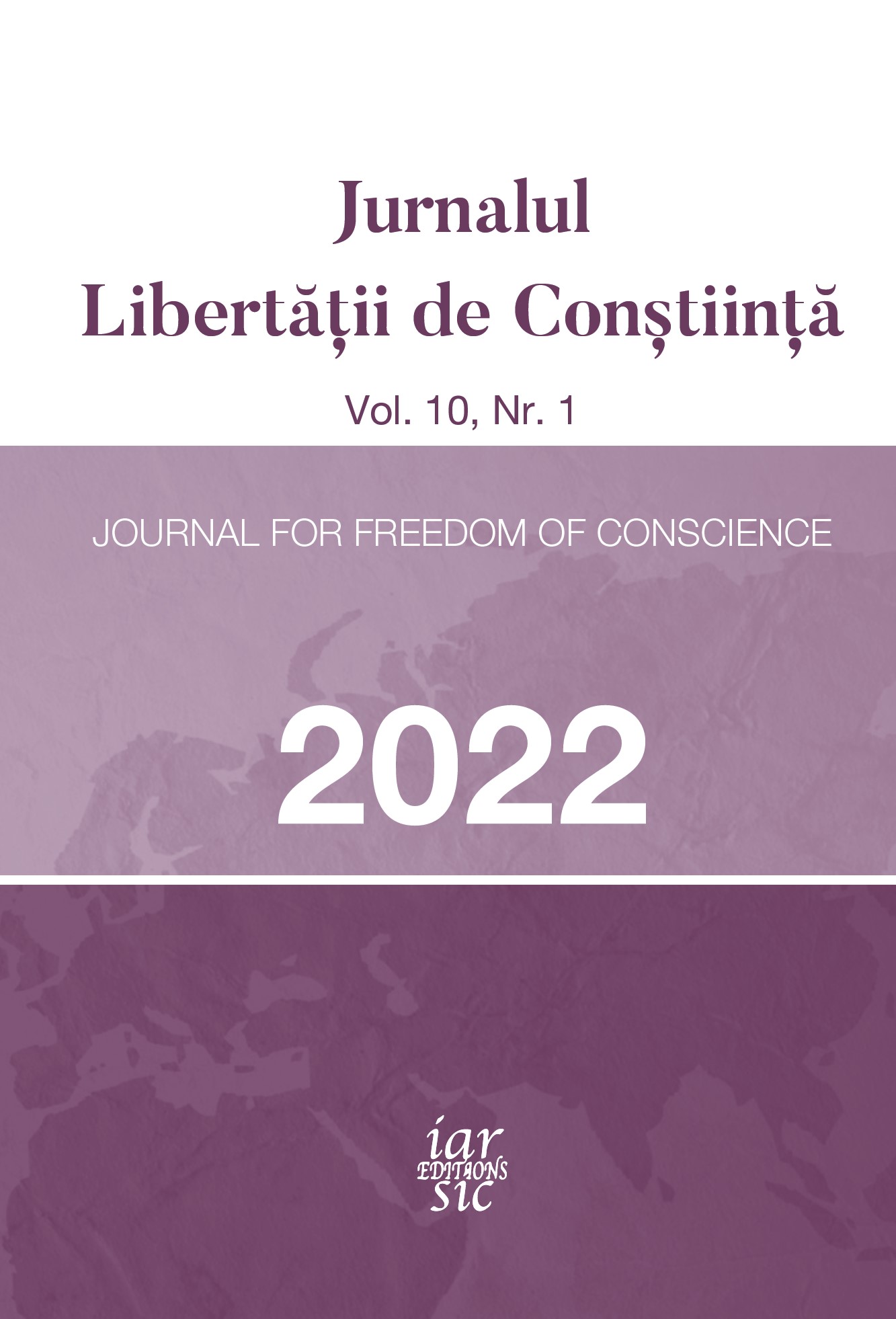DEMNITATEA UMANĂ ȘI LIBERTATEA RELIGIOASĂ
Human Dignity and Religious Freedom
Author(s): Cristian CaramanSubject(s): Music, Religion and science , Other Christian Denominations
Published by: Editions IARSIC
Keywords: human dignity; religious freedom; Protestant music; Lutheran Chorale; Protestant musical genres;
Summary/Abstract: In the actuality of the meanings that characterized the universal contextual activity, from the end of the 20th century and the beginning of the 21st century, we can see how important the issue of religious freedom is, under the sign of the same cause of good through faith, in favor of understanding the perennial values of human dignity. The call to understanding, to brotherhood and to erasing some dissensions that marked centuries of human history was heard quite frequently. From a certain point of view, all differences, which are discussed in the relations between the various religious practices, from a dogmatic and cultic perspective, also have at their origin an insufficient knowledge of the arguments, advocating for a possible rapprochement of people. Music is precisely the art that demonstrated that this approach is necessary and achievable, as long as the superior idea of faith exists, as a vital guiding principle that aims to combat essential evil. It is a capital merit, from which the concrete and important results spring, through which the Christian faith, through music, wins an important stage of the dialogues between the main cultic orientations here - Catholic, Orthodox and Protestant. Being very far from the time of separations - whether called schisms, reform or counter-reformation - face to face with atheism, humanity is now fighting together to reach a higher level of affirmation of its ideals, and Christianity, in any form of particularization, strengthens its efforts . For, of course, just as music is built on the principle of universal harmony, human actions also follow suit. Following the beginnings of the Protestant musical orientation, they link the events of the history of Protestant churches, in the world of modern Europe, to the spiritual manifestations necessary to outline the various denominations, as well as to the great initiatory stature of Martin Luther and the other representatives of the Reformation. As a direct consequence, music accompanies the events and the sequence of these manifestations, geographically nuanced by the appearance of complementary forms of singing. In the course of time, the screening of values and routine resistance established certain hierarchies, but the knowledge of the affirmation of musical genres in the European cultural landscape, as mirrors of clerical practice, appears useful in the edification of religious freedom. The musical nucleus is of course - and historically the argument and the model endures - that of the Protestant choir, varied in different aspects depending on the atmosphere of the historical eras, whether it is Calvinists, Anglicans or Huguenots. As a direct consequence, music accompanies the events and the sequence of these manifestations, geographically nuanced by the appearance of complementary forms of singing. In the course of time, the screening of values and routine resistance established certain hierarchies, but the knowledge of the affirmation of musical genres in the European cultural landscape, as mirrors of cultic practice, appears useful in the edification of religious freedom. The musical nucleus is of course - and historically the argument and the model endures - that of the Protestant choir, varied in different aspects depending on the atmosphere of the historical eras, whether it is Calvinists, Anglicans or Huguenots. The principle of taking over the energy of expression from the popular creation as a spiritual-existential potential appears, under these conditions, as an evidence that pleads for a direct relationship of the clergy with the different groups of people. From a historical and informational point of view, a large part of the history of Protestant music are known, in general, to the general public only through fragmentary aspects, insufficiently deepened in their logical sequence. The details regarding the Protestant Chorale in its holistic complexity, as well as in the perspective of its perfect evolution in the creation of Joannes Sebastian Bach, are thus worth appreciating. The musical discourse of the Lutheran Choir makes it clearer to understand the culmination of Bach’s music and the spiritual model of Protestant music, but also the artistic consequences in classicism, romanticism, up to the creation of 21st century composers. Human dignity and religious freedom are closely related to human values and human rights, which are fundamental in the process of moral and spiritual change from which respect and attitude arise, and which show that man deserves to belong to the human race.
Journal: Jurnalul Libertății de Conștiință
- Issue Year: 10/2022
- Issue No: 1
- Page Range: 164-192
- Page Count: 29
- Language: Romanian

